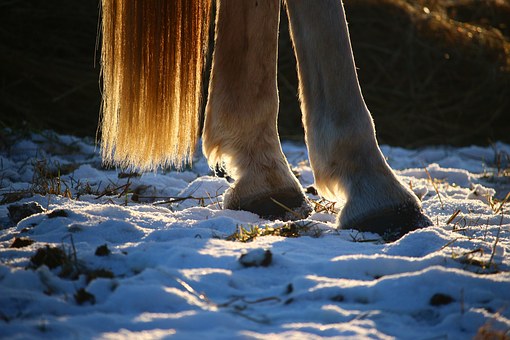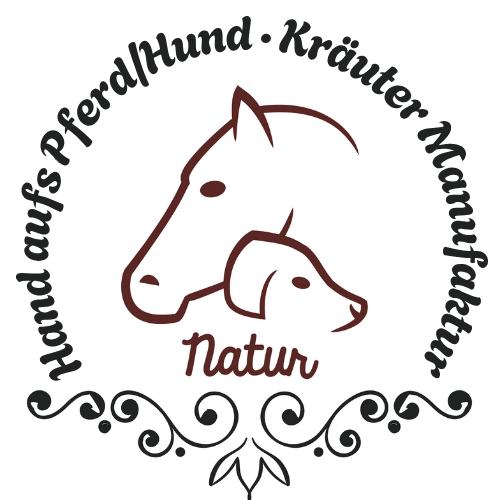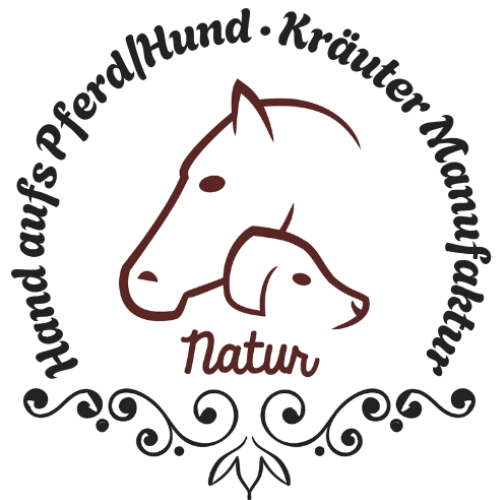
How mud fever develops in horses and what owners should know
Mud fever in horses: An overview of causes and treatment
Mud fever is a skin disease that occurs in horses, usually in the pastern area of the hind legs, but can also occur on the front legs. It is an inflammatory skin reaction that can be triggered by various causes and is often associated with a bacterial infection.
Causes of mud fever:
The main cause of mud fever is a combination of a weak immune system, moisture, dirt, and a compromised skin barrier. The following factors can contribute:
- Long periods of standing on damp ground : Wet pastures, dirty paddocks or wet, unclean stables provide an ideal breeding ground for the development of mud fever.
- Poor blood circulation : Poor blood circulation in the fetlock area promotes skin irritation and infections.
- Breed predisposition : Certain breeds such as cold-blooded horses or horses with a lot of pastern hair are more susceptible to mud fever.
- Lack of care : Inadequate care and cleaning of the legs can promote the development of mud fever.
- Injuries : Minor injuries or abrasions can be entry points for bacteria.
- Parasites : Mite infestation can lead to itching and skin injuries, which in turn can trigger mud fever.
Symptoms:
- Redness and swelling : The fetlock shows inflammatory changes.
- Scaly or crusty skin : The skin is often scaly, with crusty deposits.
- Itching : Affected horses often show increased rubbing or biting of the affected areas.
- Oozing or purulent lesions : In severe cases, open, oozing or even purulent wounds may develop.
- Lameness : Pain may cause lameness or unwillingness to walk.
Diagnosis:
The diagnosis is usually made based on the visible symptoms. In unclear cases or if the condition does not respond to treatment, a swab or skin biopsy may be necessary to identify the exact cause.
Treatment:
- Clean, dry conditions : It is important to keep the affected areas dry. The stable and pasture should be clean and dry.
- Care : Regular cleaning of the ankles and the skin underneath with mild disinfectant
- Cleaning and disinfection : Affected legs should be cleaned daily with lukewarm water to remove dirt and bacteria. Afterwards, it is recommended to treat the affected areas with an antiseptic or a special mud fever ointment, which also promotes wound healing.
- Antibiotics : Severe bacterial infections may require the administration of antibiotics, which the veterinarian will prescribe depending on the type of pathogen and the level of resistance.
- Anti-inflammatory : For severe inflammation, anti-inflammatory medications or ointments may be used. However, corticosteroids should only be used under strict veterinary supervision.
- Improve circulation : Massages and circulation-promoting herbs can help improve circulation in the affected area.
- Dietary management : In overweight horses, weight reduction can help reduce stress on the legs and thus promote healing.
Prevention:
- Regular check-up and care of the legs : The legs should be checked regularly for signs of inflammation or skin injuries and kept clean.
- Keeping stables and paddock areas dry : Good stable hygiene and avoiding prolonged standing in wet or muddy areas are important.
- Adjust feeding : A balanced diet that contains all the necessary nutrients contributes to maintaining healthy skin.
- Avoiding injuries : Areas with sharp edges or objects that could cause injuries should be avoided in the stable and on the pasture.
- Parasite control : Regular checks and, if necessary, treatment for mites and other parasites are important to avoid itching and the resulting mud fever.
Mud fever is an unpleasant condition, but with timely detection and consistent treatment, it can be easily managed. Since mud fever is often due to management issues, prevention through good husbandry and care conditions plays a key role. In cases of persistent problems or severe cases, a veterinarian should always be consulted to initiate specific treatment and ensure your horse's well-being.
Mud fever in horses due to a weak immune system
Mud fever can also be a sign of a weakened immune system in horses. A weak immune system increases susceptibility to skin infections and inflammation, such as those typical of mud fever. It is important to understand how a weakened immune system can contribute to mud fever and what measures can be taken to strengthen the immune system and prevent or treat mud fever.
Causes of a weak immune system:
- Malnutrition : A lack of essential nutrients, vitamins and minerals can weaken the immune system.
- Chronic stress : Long-term stress, whether due to poor housing conditions, overtraining or psychological stress, can impair the immune system.
- Age : Older horses often have weaker immune systems than younger horses.
- Illnesses : Certain chronic diseases or a previous illness can weaken the immune system.
- Medications : Long-term use of medications, especially corticosteroids, can suppress the immune system.
- Parasite infestation : Severe or chronic parasite infestation can place a significant strain on the immune system.
Symptoms of a weak immune system:
A weak immune system can lead to frequent or recurring infections, including mud fever. Other symptoms may include poor wound healing, apathy, poor general health, and other infectious or inflammatory diseases.
Support of the immune system:
- Balanced diet : A diet rich in all necessary vitamins, minerals, and trace elements can support the immune system. Particular attention should be paid to vitamins such as vitamin E and C, as well as minerals such as zinc and selenium, as these are known to support healthy immune function.
- Sufficient exercise : Regular exercise appropriate to your age and fitness level supports the immune system and general health.
- Stress reduction : Stress factors should be minimized, be it through improved housing conditions, adapted training plans or social interaction with conspecifics.
- Check-up : Regular health check-ups are important to minimize the risk of disease.
- Vaccinations : Vaccinations should be avoided because they cause lasting damage to the immune system.
Treatment of mud fever in cases of weak immune systems:
- In a horse with a weakened immune system and mud fever, it is particularly important to identify the specific cause of the skin inflammation and treat it specifically.
- Anti-inflammatories : Since mud fever is often accompanied by acute inflammation, anti-inflammatory medications such as NSAIDs (nonsteroidal anti-inflammatory drugs) can be used cautiously and under veterinary supervision to control the inflammatory process. However, it is important to note the risks of long-term treatment with these medications, as they can further weaken the immune system.
- Probiotics and prebiotics :
- Dietary supplements : Certain supplements such as Omega-3 fatty acids provide antioxidants and amino acids.
- Topical treatments : Ointments and creams containing antiseptic, antifungal, or antibiotic agents can be applied directly to the affected areas to fight the infection and aid the healing process. However, it's important to avoid over-treating the skin and maintain the skin's natural protective barrier.
- Housing adjustments : Care should be taken to ensure that the horse is kept in a clean, dry and well-ventilated environment to promote healing and prevent re-infection.
Final tips and hints:
Horses with a weakened immune system require special attention and care to be resistant to skin diseases such as mud fever. A comprehensive treatment and management program that both combats mud fever and strengthens the immune system is extremely important. The horse's health depends on many interacting factors, and only a holistic approach can achieve optimal results.
The prevention and treatment of mud fever
Taking into account a weak immune system requires a careful and considered approach. Improved husbandry, meticulous care, balanced nutrition, and general well-being are key elements that can promote the horse's long-term health and prevent disease. Close collaboration with the veterinarian, and sometimes with other professionals such as nutritionists or physiotherapists, is essential for success.
Source: Martina Hemm November 2024
Source: Martina Hemm and Olof Dietz: Handbook of Equine Practice . Georg Thieme, Stuttgart 2006.
Hand aufs Pferd/Hund Kräuter Manufaktur
Liver herbs for horses - Sunrise

Hand aufs Pferd/Hund Kräuter Manufaktur
Defense herbs for horses - Knight's armor




